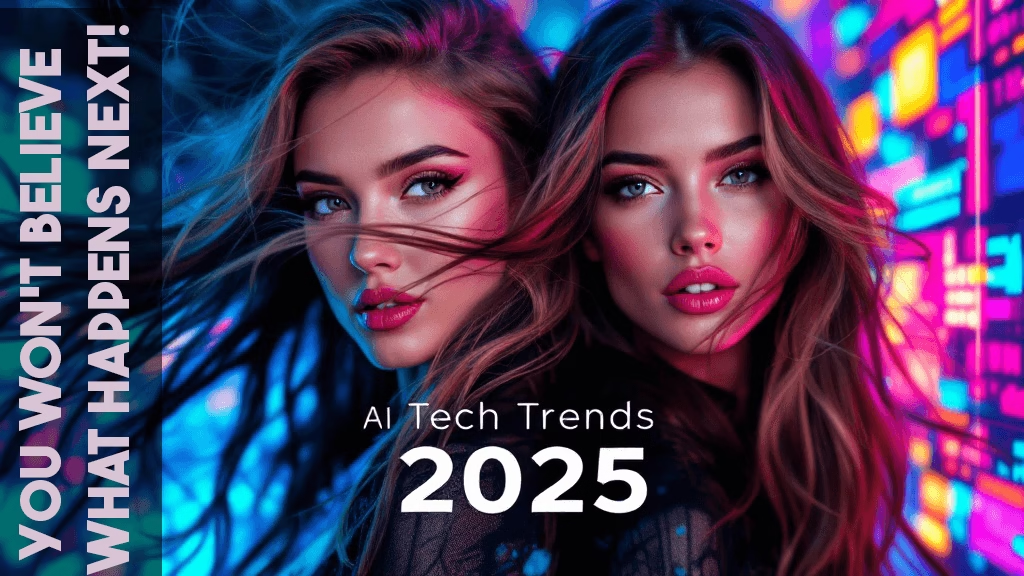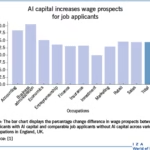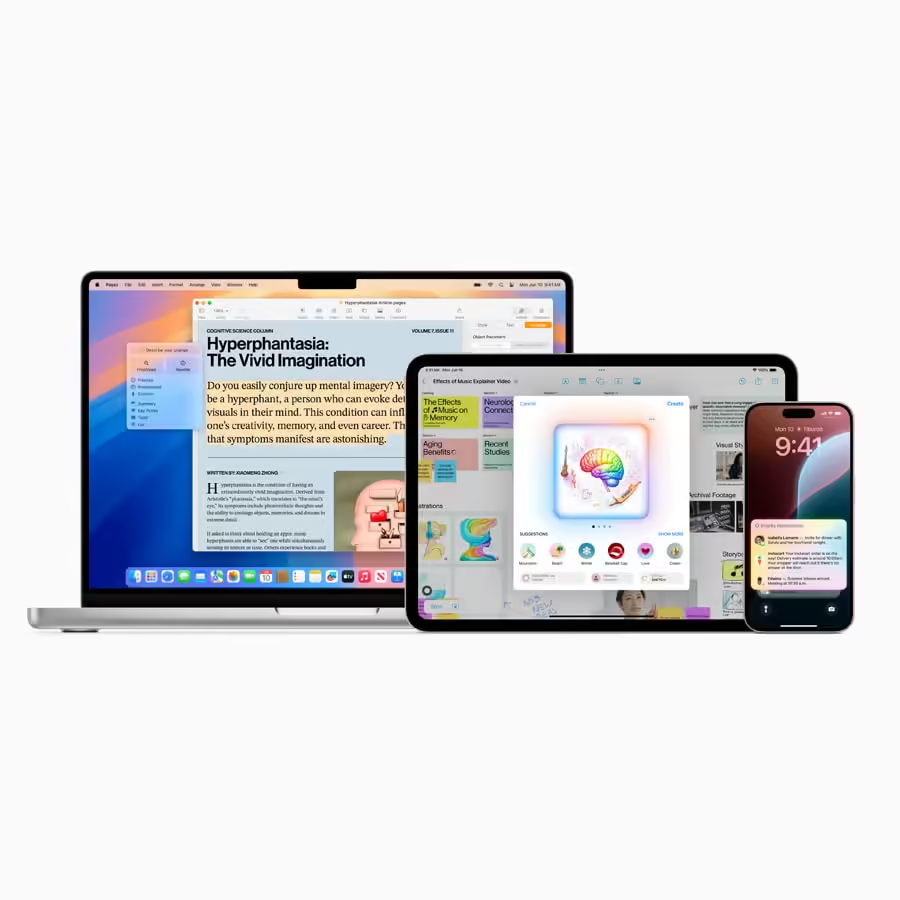AI Trends 2025: A Transformative Outlook on the Future of Artificial Intelligence
Estimated reading time: 8 minutes
Key Takeaways
- The year 2025 marks a pivotal shift in Artificial Intelligence (AI), moving from specialized tools to pervasive foundational elements across all aspects of life and business.
- Top AI trends to watch 2025 include significant advancements in Generative AI, the rise of Edge AI, and the transformative impact of AI agents 2025.
- Generative AI will evolve into sophisticated multimodal AI, capable of understanding and creating diverse content forms beyond text.
- Edge AI will enable real-time, on-device intelligence, driving pervasive AI integration in everyday objects and industrial applications.
- AI agents will demonstrate unprecedented autonomy, reasoning, and planning, tackling complex tasks across IT, cybersecurity, and personalized virtual assistance.
- Intensified focus on AI regulation and ethics 2025 will aim to address bias, ensure transparency, and establish accountability for AI systems.
- Next generation smartwatches 2025 will showcase AI’s direct impact on personal health, wellness, and seamless integration with smart ecosystems.
Table of Contents
- AI Trends 2025: A Transformative Outlook on the Future of Artificial Intelligence
- Key Takeaways
- Core Trends Shaping the Future of AI Technology in 2025
- Advancements in Generative AI and Multimodal Capabilities
- The Rise of Edge AI and Pervasive Intelligence
- The Transformative Impact of AI Agents 2025
- Navigating the Ethical Landscape: AI Regulation and Ethics 2025
- AI in Everyday Lives: The Evolution of Next Generation Smartwatches 2025
- Frequently Asked Questions
The year 2025 is poised to be a landmark year for technological advancements, with the rapid acceleration of Artificial Intelligence (AI) development fundamentally shifting AI systems from specialized tools to foundational elements permeating daily life and business operations (Source: https://news.microsoft.com/source/features/ai/6-ai-trends-youll-see-more-of-in-2025/, https://www.mckinsey.com/capabilities/mckinsey-digital/our-insights/the-top-trends-in-tech). This blog post will explore the top AI trends to watch 2025, offering a comprehensive look at the exciting and transformative future of AI technology 2025 and what it means for everyone. Organizations are not only increasing their investments and operational deployments of AI, but individuals are also interacting with more autonomous, integrated AI technologies across various touchpoints (Source: https://news.microsoft.com/source/features/ai/6-ai-trends-youll-see-more-of-in-2025/, https://aws.amazon.com/executive-insights/content/top-generative-ai-skills-and-education-trends-for-2025/, https://www.mckinsey.com/capabilities/mckinsey-digital/our-insights/the-top-trends-in-tech).
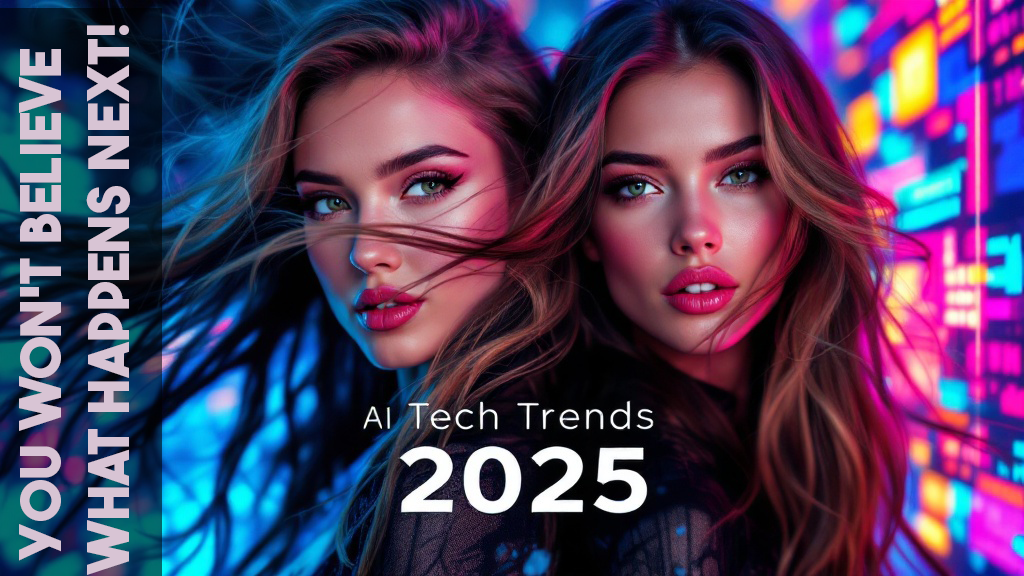
Core Trends Shaping the Future of AI Technology in 2025
The trajectory of AI development in 2025 is defined by several converging trends, each promising to redefine human-computer interaction and reshape industries. These core advancements highlight the significant momentum behind the future of AI technology 2025 and constitute the top AI trends to watch 2025.

Advancements in Generative AI and Multimodal Capabilities
Generative AI, models capable of creating new content, will continue to dominate the AI landscape in 2025. These models are evolving to understand and generate not just text, but also image, audio, and video data, marking a significant leap known as multimodal AI (Source: https://www.mckinsey.com/capabilities/mckinsey-digital/our-insights/the-top-trends-in-tech, https://hai.stanford.edu/ai-index/2025-ai-index-report). This means AI systems will become far more sophisticated in how they perceive and interact with the world, moving beyond single data types to a holistic understanding. Imagine an AI that can *read a description, generate a detailed image, compose a relevant soundtrack, and then animate a video scene* – all from a single prompt. This integration of sensory data processing will unlock unprecedented creative and analytical capabilities.
The performance of leading generative models is expected to show dramatic improvements, particularly in new benchmarks that test advanced comprehension and reasoning abilities (Source: https://hai.stanford.edu/ai-index/2025-ai-index-report). These improvements aren’t just about generating more realistic outputs; they’re about enhancing the *coherence, logical consistency, and contextual relevance* of the generated content. Enterprises will leverage these tools for rapid prototyping, personalized marketing campaigns, automated content creation, and even complex scientific simulations. The ability of these models to learn from vast, diverse datasets and synthesize new information will make them indispensable assets.

These sophisticated generative AI technologies are swiftly moving from experimental stages to production environments across various sectors, necessitating widespread upskilling within the workforce (Source: https://aws.amazon.com/executive-insights/content/top-generative-ai-skills-and-education-trends-for-2025/, https://www.mckinsey.com/capabilities/mckinsey-digital/our-insights/the-top-trends-in-tech). Companies are investing heavily in training employees not just to *use* these tools, but to *strategically integrate* them into workflows, identify new use cases, and manage their outputs effectively. This shift underscores the critical importance of adapting to the future of AI technology 2025 and recognizing that these are not just tools, but collaborators that demand new skills and understanding. The proliferation of multimodal capabilities will particularly reshape creative industries, education, and entertainment, making it one of the top AI trends to watch 2025.
The Rise of Edge AI and Pervasive Intelligence
Edge AI refers to the integration of AI directly into devices rather than relying solely on cloud infrastructure. This trend will significantly reduce reliance on cloud processing, enabling real-time, local decision-making and analytics (Source: https://news.microsoft.com/source/features/ai/6-ai-trends-youll-see-more-of-in-2025/, https://www.mckinsey.com/capabilities/mckinsey-digital/our-insights/the-top-trends-in-tech). The benefits are multifaceted: reduced latency for critical applications, enhanced privacy as data stays local, and decreased bandwidth consumption. This is particularly vital for scenarios where immediate responses are paramount, such as autonomous vehicles, industrial automation, and real-time medical monitoring.

This shift makes AI more ubiquitous, powering everything from smartphones and smart home devices to industrial sensors, forming what is known as pervasive intelligence (Source: https://news.microsoft.com/source/features/ai/6-ai-trends-youll-see-more-of-in-2025/, https://www.mckinsey.com/capabilities/mckinsey-digital/our-insights/the-top-trends-in-tech). In 2025, we’ll see more advanced AI models compressed and optimized to run efficiently on low-power, constrained devices. Consider smart city infrastructure where traffic lights adapt in real-time based on local sensor data, or agricultural drones that analyze crop health on the fly without needing a constant cloud connection. This decentralization of AI processing represents a fundamental shift in how AI is deployed and consumed, deeply embedding it into the physical world.
The implications for the future of AI technology 2025 are profound. Edge AI fosters innovation by enabling new categories of intelligent products and services that were previously impossible due to latency or connectivity limitations. It also democratizes access to AI, making advanced capabilities available in remote or resource-limited environments. This trend is undoubtedly one of the top AI trends to watch 2025, pushing the boundaries of what connected devices can achieve autonomously.
The Transformative Impact of AI Agents 2025
AI agents 2025 are distinct from traditional AI: while classic AI performs scripted, narrow tasks, next-generation AI agents possess autonomy and adaptability, enabling them to reason, plan, and act independently across different domains (Source: https://news.microsoft.com/source/features/ai/6-ai-trends-youll-see-more-of-in-2025/, https://www.youtube.com/watch?v=5zuF4Ys1eAw). This fundamental difference means they can handle multi-step problems, adapt to changing conditions, and even initiate actions based on learned objectives. Unlike a simple chatbot that answers questions, an AI agent could *book your travel, manage your calendar, and proactively suggest meeting optimizations* based on your preferences and external data.

In 2025, these advanced AI agents are expected to tackle complex responsibilities, significantly enhancing various sectors. Examples include optimizing IT operations by automatically detecting and resolving system anomalies, improving cybersecurity through adaptive responses to emerging threats, and delivering highly personalized virtual assistance that goes beyond simple automation (Source: https://news.microsoft.com/source/features/ai/6-ai-trends-youll-see-more-of-in-2025/, https://www.youtube.com/watch?v=5zuF4Ys1eAw). Imagine AI agents proactively managing your digital life, learning your habits, anticipating your needs, and executing tasks seamlessly across different platforms. This level of intelligent automation will free up significant human time and resources, allowing for focus on more strategic and creative endeavors.
Their capacity for persistent memory and proactive service positions them to drive substantial efficiency gains and disruption across diverse fields such as healthcare, finance, and customer experience, showcasing the significant impact of AI agents 2025 (Source: https://news.microsoft.com/source/features/ai/6-ai-trends-youll-see-more-of-in-2025/, https://www.youtube.com/watch?v=5zuF4Ys1eAw). In healthcare, agents could monitor patient data, flag early warning signs, and even manage appointment scheduling. In finance, they could optimize investment portfolios or detect fraudulent activities with unparalleled speed. The widespread deployment of these autonomous entities will necessitate robust security protocols and careful oversight to ensure their actions align with human values and objectives, highlighting a critical aspect of the future of AI technology 2025.
Navigating the Ethical Landscape: AI Regulation and Ethics 2025
The rapid proliferation and adoption of AI technologies have led to a growing urgency for robust AI regulation and ethical governance (Source: https://news.microsoft.com/source/features/ai/6-ai-trends-youll-see-more-of-in-2025/, https://www.mckinsey.com/capabilities/mckinsey-digital/our-insights/the-top-trends-in-tech). As AI systems become more capable and integrated into critical decision-making processes, the potential for unintended consequences and societal harm increases. This necessitates a proactive approach to establish clear guidelines and frameworks.

Key ethical considerations demanding attention include addressing bias in automated systems, ensuring transparency and explainability of AI decisions, establishing clear accountability for actions taken by autonomous agents, and protecting individual privacy in an increasingly data-driven world. Bias, often stemming from biased training data, can lead to discriminatory outcomes in areas like lending, hiring, or criminal justice. Explainability is crucial for trust and compliance, allowing users to understand *why* an AI made a particular decision. Accountability ensures that responsibility can be assigned when AI systems cause harm, preventing a “black box” scenario. Privacy remains paramount, with AI’s ability to process vast amounts of personal data raising concerns about surveillance and data misuse.
In 2025, governments and international bodies are anticipated to introduce more comprehensive legislative frameworks specifically designed to ensure that AI development and deployment remain safe, equitable, and socially beneficial (Source: https://news.microsoft.com/source/features/ai/6-ai-trends-youll-see-more-of-in-2025/, https://www.mckinsey.com/capabilities/mckinsey-digital/our-insights/the-top-trends-in-tech). We can expect to see global conversations around AI ethics crystallize into actionable policies, perhaps mirroring the comprehensive approach of GDPR for data privacy or building upon proposals like the EU AI Act. This focus on AI regulation and ethics 2025 will be crucial for responsible innovation, fostering public trust, and preventing a “wild west” scenario in AI development. Companies will need to prioritize ethical AI design principles and implement robust governance structures to navigate this evolving landscape.
AI in Everyday Lives: The Evolution of Next Generation Smartwatches 2025
Wearable technologies, particularly smartwatches, are poised for a significant revolution driven by AI in 2025. These next generation smartwatches 2025 will integrate sophisticated AI capabilities to deliver enhanced user experiences, moving beyond simple fitness tracking to comprehensive personal health and lifestyle management.

Anticipated advanced features include continuous and more accurate health monitoring, capable of tracking a wider array of biomarkers such as continuous blood glucose, blood pressure, and advanced ECG readings. Predictive diagnostics that can flag potential health issues before they become critical will become standard, with AI analyzing patterns in biometric data to identify early warning signs of conditions like atrial fibrillation or even the onset of illness. Proactive wellness suggestions, tailored to individual behavior and health data, will guide users towards healthier habits, recommending personalized exercise routines, sleep optimization strategies, and dietary adjustments. User interfaces that learn and adapt to personal habits will offer a more intuitive and seamless interaction, anticipating needs rather than merely responding to commands (Source: https://news.microsoft.com/source/features/ai/6-ai-trends-youll-see-more-of-in-2025/).
Furthermore, these smartwatches will seamlessly integrate with smart home and broader Internet of Things (IoT) ecosystems, allowing for more intuitive control and personalized experiences. Imagine your smartwatch adjusting your home’s lighting and temperature based on your biometric data and activity levels, or seamlessly connecting to your car to pre-condition the cabin. These advancements make AI’s impact tangible and accessible for everyday consumers, directly enhancing personal well-being and convenience (Source: https://news.microsoft.com/source/features/ai/6-ai-trends-youll-see-more-of-in-2025/). The data collected by these devices, analyzed by on-device or edge AI, will provide unprecedented insights into individual health, promoting proactive rather than reactive care. This represents a significant step towards truly intelligent, personalized digital companions.
The future of AI technology 2025 promises an era of unprecedented innovation and integration. As we’ve explored the top AI trends to watch 2025, from multimodal generative AI and pervasive edge intelligence to the transformative impact of AI agents 2025, and the crucial developments in AI regulation and ethics 2025, it’s clear that AI will profoundly reshape industries and daily lives. The evolution of devices like next generation smartwatches 2025 exemplifies how AI’s sophisticated algorithms will directly enhance personal well-being and convenience. Staying ahead requires both individuals and businesses to understand these rapidly evolving trends, invest in upskilling to harness new capabilities, and actively engage with the ethical and societal implications of AI (Source: https://aws.amazon.com/executive-insights/content/top-generative-ai-skills-and-education-trends-for-2025/, https://www.mckinsey.com/capabilities/mckinsey-digital/our-insights/the-top-trends-in-tech). The trajectory for 2025 points toward an AI landscape that is not only more intelligent and autonomous but also more deeply embedded in daily existence and subject to evolving governance designed to maximize benefit while minimizing harm (Source: https://news.microsoft.com/source/features/ai/6-ai-trends-youll-see-more-of-in-2025/, https://aws.amazon.com/executive-insights/content/top-generative-ai-skills-and-education-trends-for-2025/, https://www.mckinsey.com/capabilities/mckinsey-digital/our-insights/the-top-trends-in-tech). Embrace the change, for the AI-powered future is already here, offering both challenges and incredible opportunities.
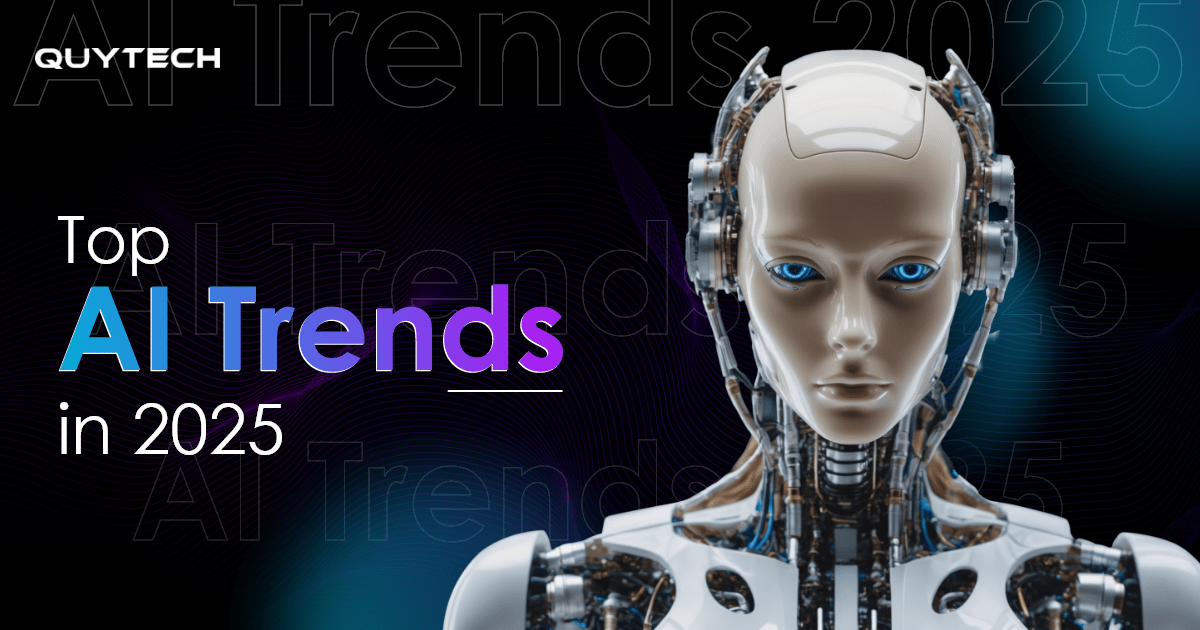
Frequently Asked Questions
Q: What is multimodal AI and why is it important for 2025?
A: Multimodal AI refers to AI models that can process and generate content across multiple data types, such as text, images, audio, and video. It’s crucial for 2025 because it enables AI to understand the world in a more comprehensive, human-like way, leading to more versatile applications in content creation, design, and complex data analysis.
Q: How will Edge AI impact daily life?
A: Edge AI brings AI processing directly to devices, reducing reliance on cloud computing. This will impact daily life by enabling real-time responses from smart devices, enhancing privacy by keeping data local, and allowing AI to operate efficiently even without constant internet connectivity. Think smarter, more responsive smart homes, autonomous vehicles, and personalized health monitors.
Q: What distinguishes AI agents from traditional AI applications?
A: Unlike traditional AI that performs narrow, scripted tasks, AI agents possess autonomy, reasoning, and planning capabilities. This means they can understand goals, devise multi-step plans, and execute actions independently across various domains. They are designed to proactively manage complex responsibilities, rather than just respond to specific commands.
Q: Why is AI regulation crucial for 2025?
A: AI regulation and ethics 2025 is crucial to address concerns like algorithmic bias, lack of transparency, accountability for AI actions, and privacy violations. Robust regulatory frameworks are needed to ensure AI systems are developed and deployed safely, fairly, and responsibly, building public trust and mitigating potential societal harms.
Q: What advancements can we expect in smartwatches by 2025?
A: Next generation smartwatches 2025 will feature significantly enhanced AI for continuous and more accurate health monitoring, including advanced predictive diagnostics and proactive wellness suggestions. They will also offer deeper integration with smart home and IoT ecosystems, providing a more personalized and intuitive user experience focused on well-being and convenience.


